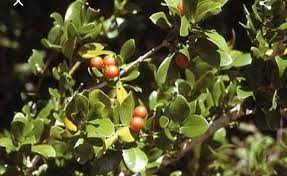Popularly known as Muteta by the Akamba ethnic tribe in Kenya (a name derived from the syrup derived from the tree’s leaves), the tree’s scientific name is Strychnos henningsii.
Not only does the tree have a significant value in the Kamba community, but it’s also generally regarded as one of the most valuable vegetation globally.
Botanical and medicinal scientists/researchers have confirmed that the tree has useful components, which are extracted and used to produce modern medicines.
Muteta Tree Benefits
To fully comprehend the tree’s benefits, we’ll look at its cultural significance in some of Kenya’s ethnic tribes and its importance in the global environment.
Muteta Tree’s Cultural Use and Its Benefits
According to the Akamba community, their ancestors have used the tree to treat malaria and fever.
They used to grind the plant’s leaves and boil the bark to extract the syrup, which the ailing patients would consume.
The Masaai community also recognized the health benefits of the tree as they used their barks to treat nausea, stomach upsets, and vomiting after a heavy feast.
They would also use the tree’s syrup to treat malaria.
Since the Muteta tree was also present in Kikuyu settled regions, the community also discovered that it was useful as a medicinal plant.
The Kikuyu’s mainly used it to relieve digestive discomforts such as stomachaches.
They also used to boil the trees’ bark and offer the extracts to elders suffering from leg-related problems, now referred to as arthritis.
The syrup also proved to relieve joints and backache ailments.
However, all these communities knew that the tree’s medicinal use had to be cautiously administered since large quantities of the syrup were toxic.
Muteta Trees’ Globally Recognized Benefits
The trees’ liquid extract is currently prescribed to diabetic patients by Southern African medicinal experts for managing diabetes.
In a past study, researchers tested the anti-diabetic efficacy of 125, 250, and 500 mg/Kg body weight on diabetic induced rats using the tree’s extracted liquid for 15 days.
The extract proved efficient in reducing blood glucose and triacylglycerol levels in all three doses tested, with the highest results observed at 250 mg/Kg.
Additionally, the extract could significantly lower cholesterol levels at 500 mg/Kg.
The results of this research revealed that the extract of Muteta tree has antihyperglycemic and anti-lipidemic effects, which aids in preventing diabetic complications.
In general, this study has supported the plant’s traditional use in treating digestive system complications since the communities didn’t know they were treating type 2 diabetes conditions.



